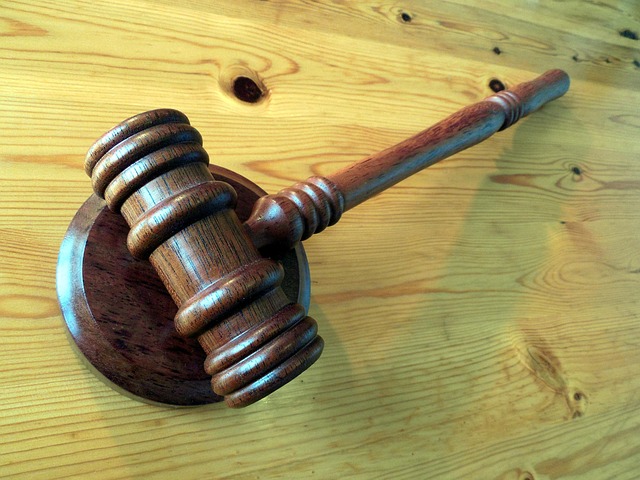Consumer Protection Suits are crucial in combating deceptive practices within the complex Financial Services industry, which faces heightened regulatory scrutiny due to sensitive data handling and significant transactions. Key components include proving consumer rights violations through evidence of misleading practices or false advertising, with a focus on substantial compensation for affected parties. Backed by Financial Services Regulatory Enforcement Actions, these suits serve as deterrents for white-collar crimes and foster public trust. With the digital transformation and rise of e-commerce, Consumer Protection Litigation is expected to grow, requiring proactive risk management and improved corporate governance from both plaintiffs and defendants.
Consumer protection suits play a vital role in safeguarding individuals from unfair practices, especially within industries like financial services. This article explores these legal battles from a comprehensive angle, focusing on their understanding through a legal lens and their impact on regulatory enforcement actions. We delve into the key components that constitute a successful lawsuit, while also considering current trends and future prospects in consumer protection litigation, with a specific emphasis on the financial services sector.
- Understanding Consumer Protection Suits: A Legal Perspective
- Financial Services Industry and Regulatory Enforcement Actions
- Key Components of a Successful Consumer Protection Lawsuit
- Impact and Future Trends in Consumer Protection Litigation
Understanding Consumer Protection Suits: A Legal Perspective

Consumer Protection Suits, from a legal perspective, are a crucial aspect of ensuring fairness and justice in the marketplace. These cases, often brought by regulatory bodies or individuals, aim to protect consumers from unfair, deceptive, or fraudulent practices. In the context of Financial Services, these suits play an integral role in maintaining market integrity, as they deter malicious actors and safeguard vulnerable consumers.
Regulatory Enforcement Actions taken against financial institutions and corporations across the country have achieved extraordinary results, holding wrongdoers accountable and recovering losses for affected individuals. Such actions not only serve as a deterrent but also restore public trust in essential services by demonstrating that corporate and individual clients alike are subject to rigorous oversight and enforcement of consumer protection laws.
Financial Services Industry and Regulatory Enforcement Actions

The Financial Services industry is a key target for consumer protection suits due to its intricate web of financial products and services that can often lead to complicated regulatory enforcement actions. Institutions within this sector, ranging from banks to insurance companies, deal with vast amounts of customer data and significant financial transactions, making them vulnerable to misconduct such as fraud, money laundering, and unfair business practices. As a result, regulators like the Consumer Financial Protection Bureau (CFPB) in the United States actively monitor and enforce laws designed to protect consumers, often initiating legal actions against financial institutions that fail to adhere to these regulations.
Regulatory enforcement actions in this sector are typically driven by white collar and economic crimes, which involve complex schemes and elaborate frauds. These cases require a delicate balance between punishing wrongdoers and mitigating the potential disruption to the broader financial system. Philanthropic and political communities often play a role in shaping regulatory responses, as public sentiment and political pressures can influence the focus and severity of enforcement actions. Therefore, institutions must not only navigate legal requirements but also understand and adapt to evolving societal expectations and regulatory landscapes to avoid potential consumer protection suits.
Key Components of a Successful Consumer Protection Lawsuit

When pursuing a consumer protection lawsuit, several key components are essential for a successful case. Firstly, establishing a clear violation of consumer rights is crucial. This involves demonstrating that a business or individual has engaged in misleading practices, false advertising, or any form of deceptive conduct that has financially harmed consumers. Gathering substantial evidence, including documents, testimonials, and expert opinions, is vital to support the claims.
Moreover, the impact on the affected consumers should be significant. A strong case can be made when numerous individuals have suffered similar losses due to the same illegal practices. This creates a compelling argument for collective action and increases the likelihood of a favorable outcome, especially with the backing of Financial Services Regulatory Enforcement Actions. A solid legal strategy, combined with an unprecedented track record in similar cases, can lead to substantial compensation and serve as a powerful deterrent for white-collar and economic crimes.
Impact and Future Trends in Consumer Protection Litigation

The impact of Consumer Protection Suits is profound, shaping business practices and consumer trust. As society becomes increasingly digital, with complex financial transactions taking place online, the need for robust consumer protection has never been more critical. These suits not only seek redress for individual consumers but also serve as deterrents, discouraging businesses from engaging in deceptive or unfair practices. The rise of e-commerce and Financial Services Regulatory Enforcement Actions have spotlighted various white collar and economic crimes, leading to heightened legal scrutiny.
Looking ahead, future trends in Consumer Protection Litigation are poised to intensify. With advancements in technology, the complexity of these cases is expected to grow, demanding innovative approaches from both plaintiffs and defendants. While jury trials remain a significant aspect of these litigations, emphasizing the importance of public perception and accountability, the legal landscape is evolving. White collar defense strategies are likely to adapt, focusing on proactive risk management and enhanced corporate governance to mitigate potential liabilities.
Consumer protection suits play a vital role in ensuring fairness and transparency within the financial services industry. By understanding the legal framework, identifying key components for successful litigation, and recognizing emerging trends, consumers can better protect themselves against unethical practices. Regulatory enforcement actions, specifically tailored to the Financial Services sector, further underscore the importance of these suits in maintaining a robust and trustworthy marketplace. As consumer protection laws evolve, staying informed and proactive remains crucial for both consumers and legal professionals alike.






